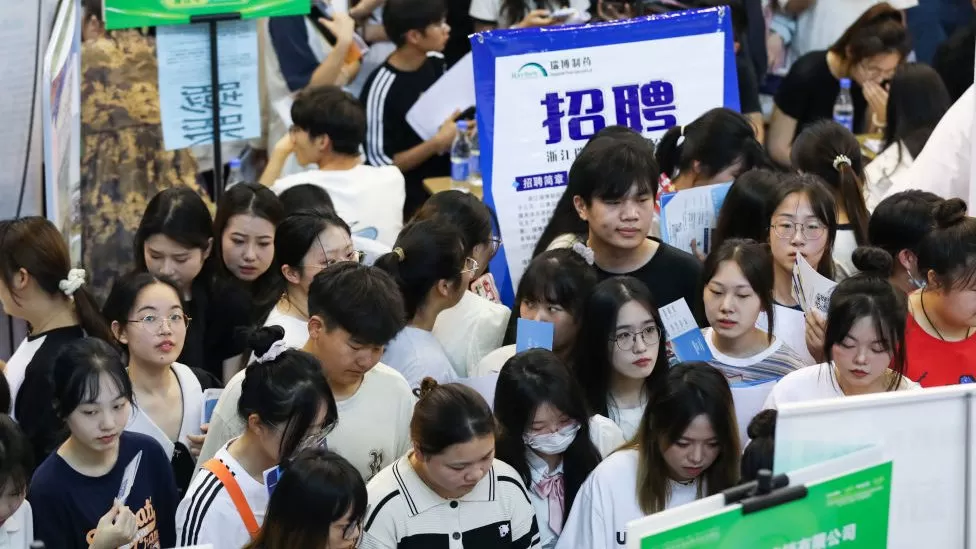Five of young Chinese between the ages of 16 and 24 are jobless

The phrase and advice, however, were not well received given the current state of the job market – some praised their government for not acknowledging unemployment, while others reacted sarcastically.
“Chinese writing is so profound,” wrote one user on Weibo, China’s Twitter-like service. “Despite the fact that we are unemployed, officials have invented the term ‘slow employment’. How long would it take? A few months or a few years?”
The term “pushes responsibility on young people all of a sudden” according to another user on Xiaohongshu, China’s equivalent of Instagram.
According to this explanation, the unemployment rate in the US during The Great Depression in the late 1920s should have been 100%, as most people were in slow jobs.
Nie Riming, a researcher at the Shanghai Institute of Finance and Law, said, “Unemployment is unemployment. We should call it what it is.”.
Young people may indeed want to take a sabbatical before starting their next job, but I think the majority of unemployed people are desperate for a job but are unable to find one.”

Covid lockdowns have also discouraged some employers from hiring “blank paper” graduates with less work experience than their predecessors, Mr Pang said.
There has also been a shortage of jobs in China as a result of recent crackdowns on industries popular with young Chinese professionals. There have been job cuts as a result of regulations against major tech companies, restrictions on tutoring, and a ban on foreign investment in private education.
Despite being aware of these problems, the Chinese government has downplayed them.
The Chinese Communist Party’s People’s Daily newspaper quoted Chinese leader Xi Jinping in May urging young people to “eat bitterness”, a Mandarin expression that means to endure hardship.
Meanwhile, state-run media has redefined unemployment. The state-run Economic Daily used the term “slow employment” in an editorial last week – while some young Chinese are indeed unemployed, others have “actively chosen slow employment”.
The origin of the phrase is unclear but a 2018 article by China Youth Daily pointed out that a growing number of university graduates were taking their time to find jobs, many choosing instead to travel or take on short teaching stints – this, the Chinese were told, was “slow employment”.
This time, the definition includes those who haven’t found a job or who choose to pursue education, learn new skills, or take a gap year. As long as people take action and work hard, no matter how hard the job market is, they won’t have to worry about being unemployed.
